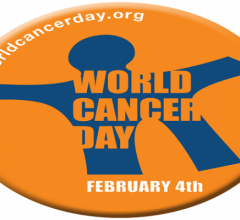February 5, 2009 - The National Policy Board of US Oncology, which supports one of the nation's largest cancer treatment and research networks representing approximately 1,200 oncologists nationwide, this week adopted its Principles for Reforming Cancer Care, designed to guide the organization's national legislative agenda as it works with physicians, manufacturers and payers to enhance patient access to advanced cancer care in the community setting.
"These reform principles are intended to provide a clear understanding at the onset of the 2009 legislative session of the philosophies that will guide our legislative and administrative policy agenda on behalf of our physician network and the patients we serve," said Edward R. George, M.D., chairman of the US Oncology National Policy Board. "With a variety of complex healthcare legislation proposals and policy reform ideas introduced with ever-increasing speed this year, it is important to always remain clear on our steadfast goals in support of America's cancer patients, and this document serves to keep these objectives in the forefront in all legislative discussions."
The principles state that:
1. All cancer patients should:
- Have access to integrated, outpatient care in the community where they live
- Receive high-quality, evidence-based, comprehensive care
- Have access to clinical trials studying the latest promising therapies
- Be assured the drugs administered to them are genuine and
unadulterated
- Obtain needed care without the threat of severe financial hardship and without regard to ability to pay
2. All patients with incurable cancers or late-stage disease should:
- Receive clear communication about their prognosis
- Have access to high-quality, evidence-based palliative care,
supportive care and end-of-life planning as appropriate to meet their individual physical, mental, social and spiritual needs
3. Payment policies should incentivize physicians to provide high-quality, evidence-based care that reflects clinical excellence and value.
4. Payers should incentivize the use of healthcare information technology to empower efficient, high quality cancer care.
For more information: www.usoncology.com


 September 07, 2023
September 07, 2023 






